Whole forests disappeared in the process.
The General Synod photocopier ran red hot for days.
Not anymore.
Because the paper war is over.
If you're seeking a slice of the putea which the St John's College Trust Board allocates each year for Christian education – and this year's distribution is expected to be around $14.5 million – then you'll be applying online.
Till now, the SJCTB and Te Kotahitanga have been relying on a paper-based system to decide who gets what.
Applicants for scholarships – whether they be individuals applying on their own behalf, or people doing so on behalf of diocesan or hui amorangi education projects – did paperwork.
Then they sent their completed forms (either by snail mail or scan and email) to Te Kotahitanga's Executive Officer, Paula Jakeman, who would collate multiple copies of these applications for distribution to members of both those bodies.
That was a mammoth task.
But under the new setup, applicants will fill out online questionnaires – they have until August 31 to do so – and submit their applications direct to the Secretary of the SJCTB, Grant Hope.
The new online system, which has been trialled with the New Initiatives Fund, is an attempt, says Grant, to make life simpler for everyone.
Especially for applicants.
"We're hoping it'll be easier for people to apply, and that we'll be able to spread the net and reach a wider audience.
"The online form just asks people to walk through a series of questions, answer those questions, and attach explanation for what they're wishing to fund – be it their own scholarship, the education programmes they want to run."
#
One of the aims of the new system, says Grant, is that it becomes a central "portal into which the Trust Board and Te Kotahitanga can peer."
"Broadly speaking," says Grant, "What we've discussed with Te Kotahitanga is that the Trust Board will be primarily involved in a review to confirm that the applications meet the purposes of the Act.
"That's a pretty straightforward test. Or at least it should be. Section 3(1)c talks about funding the education of students 'so long as such education includes instruction in the principles of the Christian faith.'
"Te Kotahitanga's review will be more around whether the applications and the education programmes are aligned to their core priorities and strategies for the church.
"Then, as we did with the New Initiatives, Paula and I will combine the views of both those bodies – and from that combined perspective final recommendations will be made, and the Trust Board will choose which applications are approved.
"That system worked very well on the New Initiatives Fund. It was a good process, and we both achieved our responsibilities."
#
The online system offers other benefits, says Grant.
By releasing Te Kotahitanga from the paper war, it should give their new members more time and space to focus on their primary task, as spelled out by the canon – which is the formation of educational strategy for the church.
There are smaller benefits, too. For example, it's easy update the forms as evolving needs dictate. So, the Trust Board and Te Kotahitanga have greater flexibility to change things going forward.
#
The Trust Board has also paved the way for people to apply for multiple years of funding.
"A lot of the Diocesan, Hui Amorangi and common life training programmes have been running for a number of years," says Grant. "They may be modified for current needs – but by and large, they are a fundamental part of what the trust funds.
"So, we've said to people: 'If you're going to run this programme for five years, then apply for five years of funding.'
'That way, you won't be going through the same exercise five times.'
"During that longer period, we'd just look to have somebody independent of both Te Kotahitanga and the Trust Board to do a quick review – to ensure the objectives are being achieved, and that the funding given is achieving good outcomes for the church.
"We're just trying to make it easier for people to apply for money.
"Not necessarily to make it easier for them to get it – the funding remains heavily contestable – but definitely to make it easier to apply for and to have a much more transparent process that everyone can understand and see into."
#
At present, SJCTB education funds are allocated three ways – with about 10 percent going to individual lay and clergy scholarships; 25 percent to St John's College and 65 percent of the putea going to hui amorangi and diocesan-delivered ministry education projects.
Grant expects that these proportions will stay essentially the same.
The Trust’s online process for funding of Section 3/College Fund applications is available via the Trust’s website: https://www.sjctb.co.nz/collegefunding







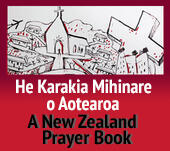
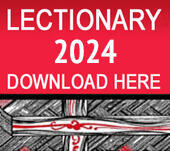


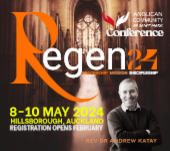
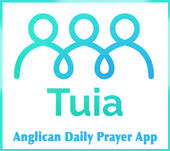

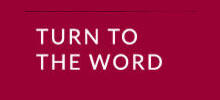


Comments
Log in or create a user account to comment.